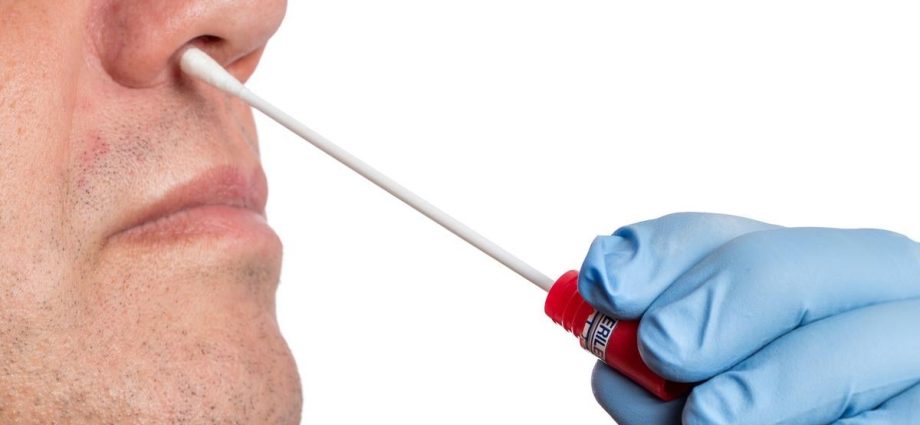WEDNESDAY, Nov. 6, 2024 (HealthDay News) — A simple nasal swab might help doctors predict the severity of a person’s COVID infection, a new study suggests.
More than 70% of people with mild or moderate COVID develop certain antibodies in their nasal cavities that are linked to fewer symptoms, better immune response and faster recovery, researchers reported Nov. 6 in the journal Science Translational Medicine.
These are autoantibodies, or antibodies that attack the body and typically are associated with autoimmune diseases like rheumatoid arthritis, inflammatory bowel disease and psoriasis, researchers said.
“Generally, autoantibodies are associated with pathology and a negative prognosis, causing increased inflammation that would indicate more severe disease,” noted senior researcher Eliver Ghosn, a faculty member with the Emory University’s Lowance Center for Human Immunology and Emory Vaccine Center.
Previous studies of COVID patients have suggested that autoantibodies in the blood indicate a more life-threatening illness.
But those studies looked at the blood rather than in the nose, which is the actual site of infection, researchers said.
“What’s interesting about our findings is that with COVID-19, it’s the opposite. The nasal autoantibodies showed up soon after infection, targeting an important inflammatory molecule produced by the patient’s cells,” Gohsn said in an Emory news release.
“These autoantibodies latched on to the molecule, likely to prevent excessive inflammation, and faded as people recovered, suggesting the body uses them to keep things in balance,” Gohsn added.
These findings indicate that the immune response mounted in the nose against COVID differs from that mounted in the blood.
Nasal autoantibodies provide protection, while autoantibodies in the blood are linked to more severe COVID.
“The key to this puzzle was to look directly at the site of infection, in the nose, instead of the blood,” Ghosn said. “While autoantibodies in the blood were linked to bad prognosis, producing them only in the nose soon after infection is linked to efficient recovery.”
Researchers are working on a nasal swab test that could be used to predict how bad a person’s COVID infection will prove to be.
“Right now, we’re either looking at infection risk before it happens or analyzing the infection course well after recovery,” said researcher Ben Babcock, a doctoral candidate at Emory. “Imagine if we could capture the immune response in real time, right in the clinic. A just-in-time test could give physicians and patients the real-time information they need to make faster, smarter treatment decisions.”
More information
The U.S. Centers for Disease Control and Prevention has more about COVID-19.
SOURCE: Emory University, news release, Nov. 6, 2024
Copyright © 2026 HealthDay. All rights reserved.

